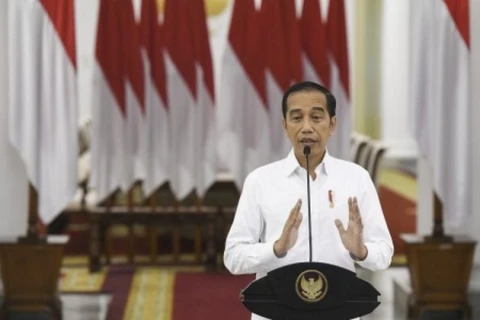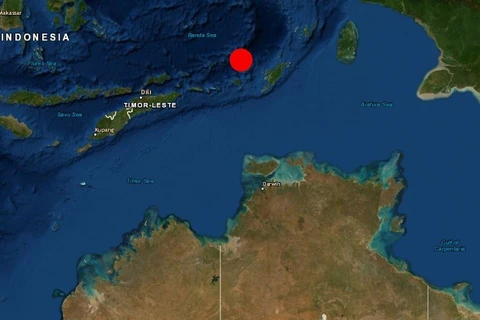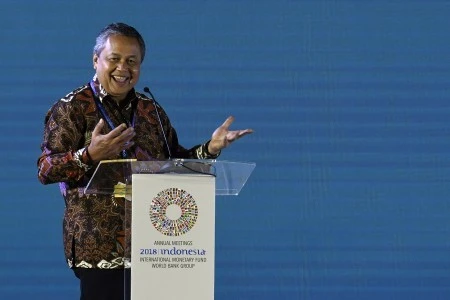 A forest fire in Indonesia (Source: https://www.channelnewsasia.com/)
A forest fire in Indonesia (Source: https://www.channelnewsasia.com/) Jakarta (VNA) – Smog from forest fires in Indonesia could complicate the country's efforts to fight the COVID-19 pandemic, as its government has no contingency plan for additional respiratory diseases, local health experts warned on May 8.
Wiendra Waworuntu, director for communicable disease prevention and control at the Indonesian Ministry of Health, said that the symptoms of acute respiratory infection caused by smoke from the fires are similar to coronavirus symptoms.
A simultaneous surge in respiratory illness from the two causes can become a major headache for Indonesian health authorities, Waworuntu said, adding that research shows that there is a correlation between high mortality rate and high level of pollution in an area impacted by COVID-19.
Some experts fear the haze will hamper efforts to mitigate the COVID-19 pandemic that has infected 13,112 people and killed 943 in Indonesia as of May 8.
The situation may get worse due to a possible shortage of N95 face masks. Currently, the high-grade masks can only be used by medical workers, while members of the public have been instructed to wear normal surgical masks.
But Waworuntu said N95 masks are also needed for people affected by smoke from forest fires, because ordinary masks will not be effective to filter the smoke.
"There may be scarcity of N95 masks in June, July and August when dry season reaches its peak, while we have to compete with other countries to get them," she said.
Moreover, the Indonesian Government has not designed any contingency plan to deal with both acute respiratory infection caused by forest fires and COVID-19, while most human resources in health have been focused to deal with COVID-19, she added, noting the need for strategies to prevent a catastrophe.
Haze from forest and land fires caused by illegal slash-and-burn farming practices, mostly for palm oil plantations, occurs annually in Indonesia.
As of May 7, at least 765 hotspots have been detected in the country, although the number was lower than 1,222 a year earlier, according to local authorities.
In 2019, fires devastated more than 1.6 million hectares of land across the country, mostly on the islands of Borneo and Sumatra, up from about 630,000 hectares in the previous year./.
VNA























